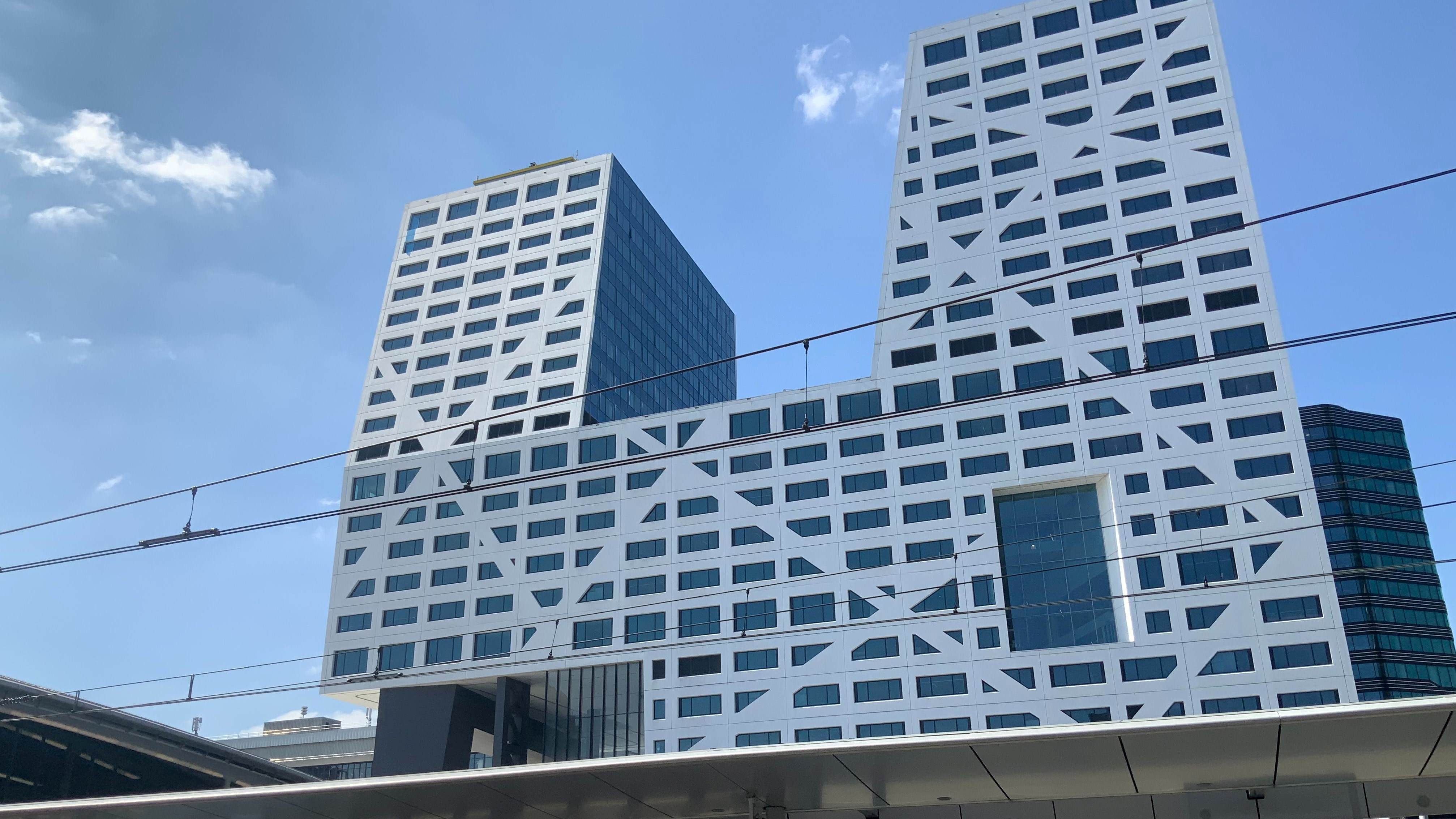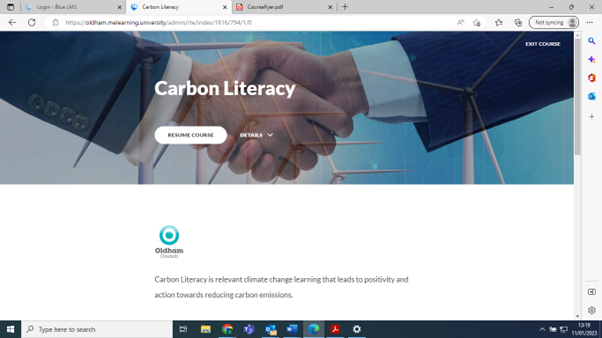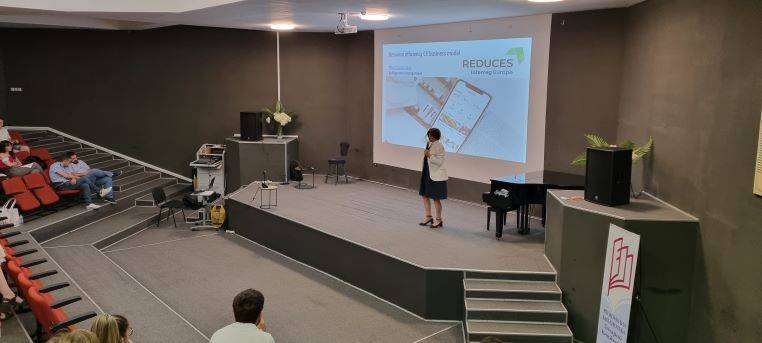
Final dissemination meeting in Utrecht
The final meeting gave an update of the policy development in the participating regions and led to new insights for local policy makers on CE policy.
Circular economy changes the methods and revenue models of business. Instead of traditional ownership, consumption is based on the use of services: sharing, leasing and reusing. The new method challenges countries and regions to develop and construct new business models that can be used to respond to the global climate crisis, among other things. The REDUCES project funded by Interreg Europe aims to identify the best business models in six European regions and to research and critically assess their climate impacts and sustainability. The project covers six European cities and regions: Southwest Finland, Valencia (Spain), Manchester (UK), Utrecht (Netherlands), Maramures (Romania) and Bulgaria. The project aims to find suggestions for each city or region to guide them towards sustainable circular economy business. The work is based on both interregional and regional collaboration between the partners and the stakeholders. The project will continue until the end of July 2023.
€1,389,939.00
Environment and resource efficiency
In the project, we study whether circular economy business activities are automatically sustainable. The study is based on the five circular economy business models defined by the Finnish innovation fund Sitra and aims to find ongoing methods, corporate examples and projects in line with each model. The business models comprise
Our objective is to collect the best practices within each of the business models and use them to identify opportunities for better supporting and promoting sustainable circular economy business in the different regions. The result is an action plan for each region to help influence political decision-making processes and promote circular economy business in the region.
Read more about the automation against plastic and food waste.
Read also the flyer about Product as a service model.
Read more about the Hemp as a sustainable and renewable ingredient.
Read also our study report on Renewability & Product as a service & our flyer about Renewability!
Read more about the experimentation of electronic means of mobility for Turku city employees.
Read also our study report on Sharing platforms & our flyer about Sharing platforms!
Read more about the municipal furniture reuse model.
Read also our study report on Product-life extension & our flyer about Product-life extension!
Read more about the utilization of land masses and high-volume side streams and cities.
Read also our study report on Resource efficiency and recycling & our flyer about Resourse efficiency and recycling!
In South West Finland, the structural funds programme is focused on three thematic objectives:
- enhancing the competitiveness of SMEs;
- strengthening research, technological development and innovation
- supporting the shift towards a low-carbon economy in all sectors.
The programme will contribute to Finland realizing the key EU and national development priorities along with the "Europe2020" objectives. In Southwest Finland circular economy is adopted in the strategy for regional development, where one of the targets is to make the region carbon neutral by 2050. In programme period 2014-2020, 25% of funding should be aimed at the promotion of low-carbon economy. The aim is for the strategy function as an innovation platform for circular economy and creating innovation capacities for supporting material, energy, nutrient and resource efficiency.
There is still need for development. Especially more efforts are needed to direct funding to support transition to the circular economy business models, and to activate regional stakeholders to apply for the type of projects needed for this development. Changes in structures, adoption of new actions and models, CE product development, investments and multidisciplinary know-how are needed in the region to further transition to circular economy.
The ERDF Regional Operational Programme Valencia is the document that determines the strategy and objectives actions co-funded by the ERDF, as well as financial allocations scheduled for these goals.
The priority axes established by the Operational Programme are the following:
-Strengthening research, technological development and innovation.
-Improving the use and quality of ICT and access to them.
-Improving competitiveness and international presence of SMEs.
-Supporting the shift towards a low-carbon economy in all sectors.
-Keep and protect the environment and promote the resource efficiency.
Circular economy is one of the key topics to support the shift towards a low-carbon economy in all sectors, as well as to keep and protect the environment and promote resource efficiency. The Community of Valencia is a pioneer in some of the matters that circular economy considers, such as the treatment and reuse of wastewater. However, there is still a gap to learn about other processes. In addition, the topic “business models for circular economy” is not addressed at all while it is clear that business models are of key importance to make this transition happen. The project will contribute to the improvement of the ERDR Regional Operational Programme providing with best practices on business models for circular economy and self-sustaining business plans to implement them, and making all the actors involved aware of the different opportunities that circular economy entails.
Thematic objective 4 of the ESIF programme for England is aimed at ‘’Supporting the shift towards a low carbon economy in all sectors’’. In Greater Manchester, the priorities identified to deliver the Greater Manchester Strategy via this policy tool are to develop a Low Carbon Economy via development of energy enterprises; GM’s low carbon infrastructure; demonstrate building energy efficiency/low carbon energy generation based on the strengths of GM’s universities in development of power and smart metering systems, energy management and low carbon sustainability; Support growth in GM’s SMEs in the low carbon/environment sector, including via market development, diversification and eco-innovation; Support SMEs across all sectors to increase the energy/resource efficiency of their business products/services and reduce environmental risk.
However, despite the comprehensive nature and interventions of the ESIF programme, there is currently no intervention to focus specifically on the achievement of a zero waste economy. Despite this, the Greater Manchester Low Carbon Hub, responsible for delivery of the GM low carbon agenda is currently working on the development of a strategic framework for the achievement of the circular / zero waste economy. Ensuring that the future ESIF programme for England is aligned to GM strategy post 2020 will enable the redirection of thematic interventions focused on the achievement of a zero waste/circular economy for Manchester, and England.
The ’Kansen voor West II’ policy instrument facilitates four goals: (1) strengthening research, technological development and innovation; (2) supporting the transition to a low-carbon economy in all sectors; (3) stimulating employment and supporting labour mobility; and (4) stimulating social inclusion and fighting poverty. Utrecht aims to achieve a sustainable economic development, promoting prosperity, jobs and services. Utrecht does focus on eight economic priorities, including ‘Creating a sustainable economy’. Even though, some of the progress is still lacking behind the city’s ambition to comply with Sustainable Development Goals.
These priorities strengthen the business climate in the city in general and the specific areas and sectors where Utrecht distinguishes itself in particular. In order to support the transition Utrecht aims at a sustainable economic growth and accelerating current sustainable economic activities. The city aims to co-create a competitive, sustainable economy, together with local and larger businesses, both starting entrepreneurs and established firms. Priority is given to firms who aim for substantial resource efficiency, energy savings, and creating new business and employment in the field of sustainability and circular economy. The policy is aimed at pursuing knowledge transfer and innovation in networks of firms aimed at development of cleaner and less wasteful products and services.
The general objective of this policy instrument is boosting the regional economy through multidimensional and integrated development for reducing the intra- and inter-regional disparities and raising the standard of life in the NW region. There are 4 priorities : 1- Increasing economic competitiveness of the the region & stimulating research and innovation, 2- Increased accessibility of the region, the mobility of population goods and information, 3- Increasing the quality of life of the residents in the region 4- Protection of natural & anthropic environment , efficient use of resources & reduce emissions. Our project is relevant for the Priority 1 and 4.
Maramures county as part of NW Development Region contributes to the Regional Development plan of NW Region 2014-2020 & Regional Smart Specialization Strategy. According to these 2 strategic documents emphasis should be placed on environmental protection & sustainable development, on energy efficiency & on the principles of the circular economy. The circular economy is a new concept, not so well spread in our economy, but in order to reduce the gap with developed countries we must take it into account and seriously addressed.
In the county strategy 2014-2020 there are 2 priorities in line with the project focus - circular economy: P 1.4 Increasing the degree of materials recovery & energy resources, and P 4.2 Ensuring the quality of the environment and natural and anthropogenic risk reduction in the county.
OP Environment 2014 - 2020 is contributing to achieving the objectives: 3.1 Sustainable consumption and production and 3.2 Turning waste into a resource at EU level by 2020. Both of the objectives will be reached by funding of measures laid down in Priority Axis 2 . The Axis 2 “Waste” includes the application of the principles of resource efficiency and circular economy. Sustainable consumption and production contributing to the circular economy objectives will be achieved by funding of the measures laid down in Axis 2 related to demonstration/pilot projects and business models, incl. shifting consumption models,improvement of waste management systems, extended product life cycle and eco-design.
The financial allocation to Priority Axis 2 is guided mainly by the identified national needs. At present 72% of the generated waste on municipal level is going to landfills. 50% of those 72% are biodegradable waste. According to the national targets, the share of biodegradable waste going to landfills shall be reduced to 35% and the share of recyclable waste should be increased to 50% by 2020. OPE 2014-2020 is expected to contribute to the fulfillment of country’s engagements in the waste sector and to the achievement of targets resulting from legislation with regards to circular economy. There is a lack of technical capacity to develop demonstration projects and business models contributing to waste reduction through proper waste management systems and better CE development.

The final meeting gave an update of the policy development in the participating regions and led to new insights for local policy makers on CE policy.

Oldham Council has developed a mandatory e-learning package for all staff, focusing on Carbon Literacy.

We are reaching the mid-point of the implementation phase of the action plan in the Valencian Region.

Main focus of the Action plan in Bulgaria is effective and engaging communication campaign to enable RE centers to function properly.

Maramureș County is making major steps for developing a software application for waste.

REDUCES project ended its Phase 1 successfully in July 2022. Looking back to the three years of the project, a lot has happened in the world and in the project.

The last SG meeting in Bulgaria focused on the climate changes, urbanisation and the benefits of introducing circular economy business models.
The seventh and last stakeholder meeting was held in Southwest Finland as two separate meetings.

Stakeholders' meeting to validate the final version of the Valencia Region Action Plan.
Partners and stakeholders in Greater Manchester have been working together to agree the actions that will be taken forward during Phase 2 of the REDUCES project